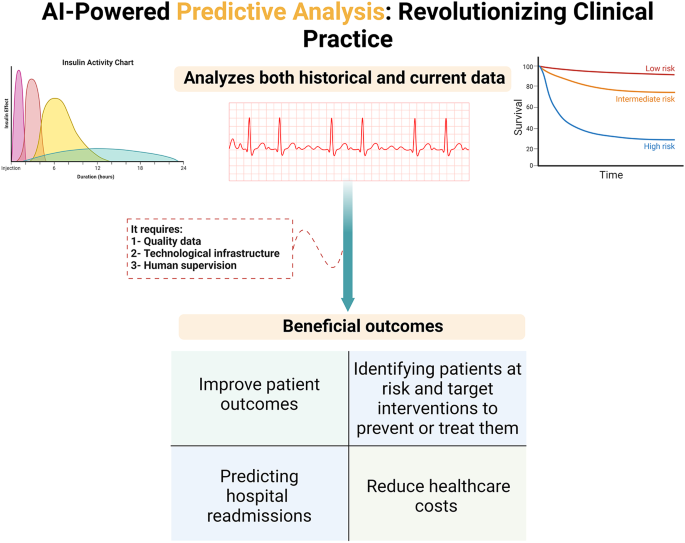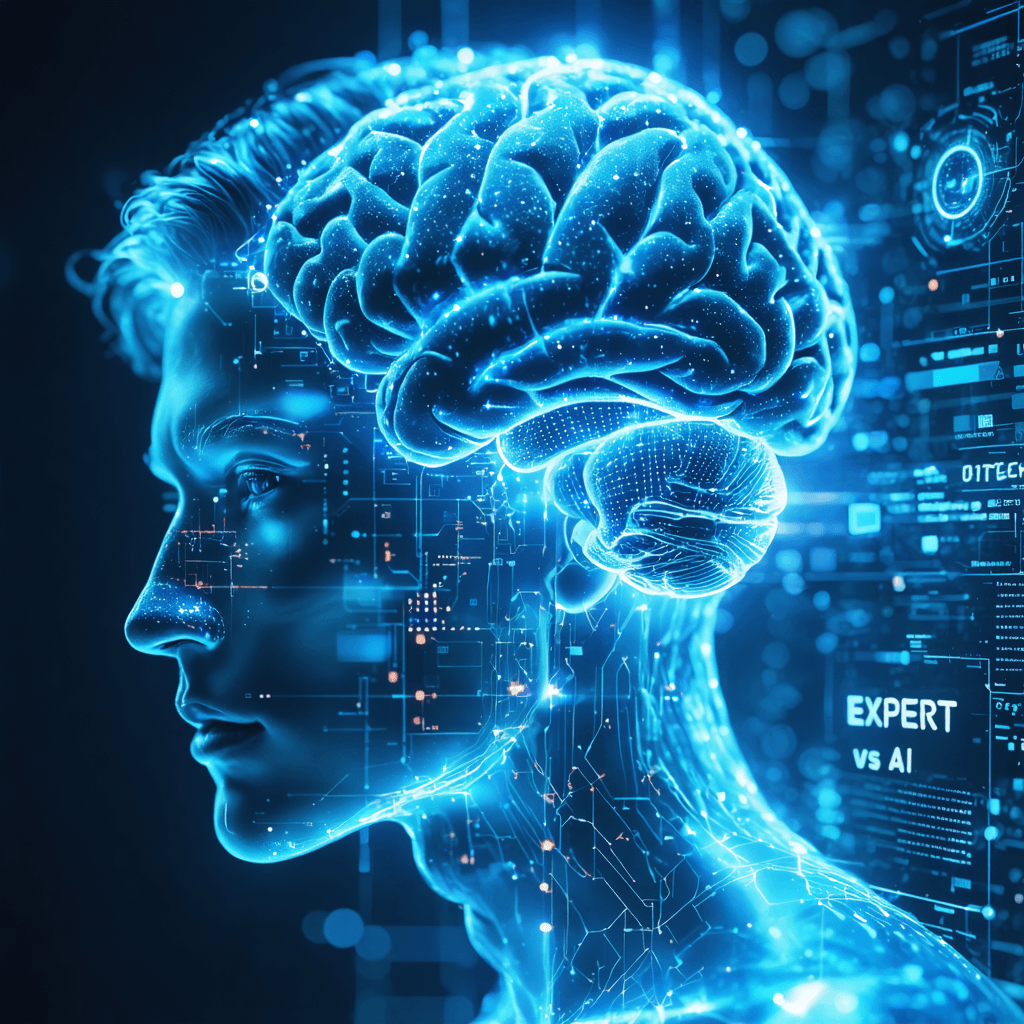Expert Insights vs AI: The Battle to Predict Chronic Disease Outcomes Reshapes Healthcare's Future
The healthcare landscape is undergoing a profound transformation as artificial intelligence (AI) and human expertise converge in the battle to predict and manage chronic disease outcomes. This technological revolution is reshaping how we approach healthcare delivery, raising important questions about the future role of medical professionals and the potential of machine learning in clinical decision-making.
The Rise of AI in Healthcare Prediction

Recent developments in AI-powered healthcare systems have demonstrated remarkable capabilities in disease prediction and outcome forecasting. These systems analyze vast amounts of patient data, including electronic health records, genetic information, and lifestyle factors, to identify patterns that might escape even the most experienced clinicians. According to recent studies, AI algorithms have shown promising results in:
- Early detection of chronic diseases
- Prediction of disease progression
- Risk assessment for complications
- Treatment response forecasting
- Hospital readmission prevention
The Human Element: Expert Knowledge and Clinical Judgment
While AI shows impressive capabilities, medical experts bring irreplaceable elements to healthcare decision-making:
- Contextual Understanding: Physicians can integrate complex social and environmental factors that may not be captured in structured data
- Ethical Considerations: Healthcare professionals navigate complex moral decisions that require human empathy and judgment
- Patient Communication: The ability to explain and discuss treatment options with sensitivity and understanding
- Clinical Intuition: Years of hands-on experience that inform nuanced decision-making
Synergy Rather Than Competition

The most effective approach appears to be a collaborative model where AI augments rather than replaces human expertise. This hybrid approach has shown several advantages:
- Enhanced Diagnostic Accuracy: Combined AI-human assessment often achieves higher accuracy than either approach alone
- Improved Efficiency: AI can handle routine tasks, allowing healthcare providers to focus on complex cases
- Reduced Error Rates: Cross-validation between AI predictions and expert judgment helps catch potential mistakes
- Better Resource Allocation: Predictive analytics help optimize healthcare resource distribution
Real-World Implementation Challenges
The integration of AI systems into healthcare practices faces several hurdles:
Technical Challenges
- Data quality and standardization
- Integration with existing healthcare systems
- Privacy and security concerns
- Algorithm transparency and explainability
Human Factors
- Resistance to technological change
- Training requirements for healthcare staff
- Trust building between AI systems and medical professionals
- Maintaining the human touch in patient care
Impact on Patient Outcomes

Early evidence suggests that the combination of AI and expert knowledge is yielding positive results:
- 30-40% improvement in early disease detection
- Reduced hospital readmission rates
- More personalized treatment plans
- Better prediction of treatment outcomes
- Enhanced preventive care strategies
Future Perspectives
The healthcare industry is moving toward a more integrated approach where:
- AI systems will become more sophisticated in handling complex medical cases
- Medical education will evolve to include AI literacy
- Patient care will become increasingly personalized
- Preventive medicine will take center stage
- Remote monitoring and telemedicine will expand
Ensuring Ethical Implementation
As we advance in this field, several ethical considerations must be addressed:
- Maintaining patient privacy and data security
- Ensuring equitable access to AI-enhanced healthcare
- Addressing potential biases in AI algorithms
- Preserving the doctor-patient relationship
- Establishing clear liability frameworks
Looking Ahead
The future of healthcare lies not in choosing between AI and human expertise but in finding the optimal balance between both. As technology continues to evolve, the focus should be on developing systems that enhance rather than replace human capabilities.
Want to learn more about the intersection of AI and healthcare? Explore our comprehensive courses and resources at 01TEK. From basic concepts to advanced applications, we offer the tools you need to stay ahead in the evolving healthcare landscape. Visit 01TEK.com today to begin your journey into the future of healthcare technology.
Sources:
Success is a lousy teacher. It seduces smart people into thinking they can’t lose.
Bill Gates



